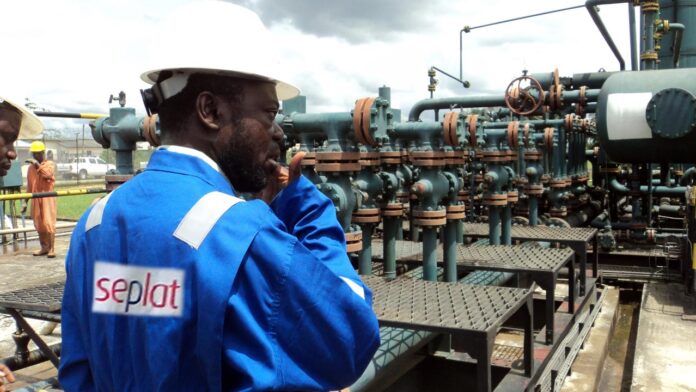Seplat Energy Plc, working in partnership with the Nigerian National Petroleum Company Limited (NNPCL), has successfully delivered its first domestic supply of Liquefied Petroleum Gas (LPG) from the Bonny River Terminal in Rivers State.
The milestone shipment of 12,600 metric tons of Butane marks a significant shift for the terminal, which has historically functioned as an export hub, and underscores Seplat’s commitment to improving Nigeria’s energy independence.
This supply strategy is in line with Seplat’s general goal of raising local gas availability while lowering the nation’s reliance on imported cooking gas. The corporation is now wrapping up two significant natural gas projects: the 90 MMscfd Sapele Gas Plant in Delta State and the 300 MMscfd ANOH Gas Plant in Imo State. Beginning operations in the fourth quarter of 2025, both sites will have LPG extraction apparatus producing 120 metric tons and 163 metric tons every day.
The News Chronicle understands that changing Nigeria’s energy future calls for much more than only increasing gas supply. Millions of households are switching from biomass fuels like firewood and kerosene, still extensively employed around the nation, thanks to Seplat’s easier accessibility to LPG. This change helps to meet national goals for climate by reducing deforestation and enhancing air quality.
Roger Brown, Chief Executive Officer of Seplat Energy, stressed the need of local production for securing energy security, reducing carbon emissions, and fostering more affluent society by pointing out Nigeria’s quick rise in gas and LPG consumption. He emphasized how committed the company was to using renewable energy sources to propel this revolution.
Seplat’s achievements in the LPG market hinge on its significant purchase of Mobil Producing Nigeria Unlimited in late 2024, rebranded Seplat Energy Producing Nigeria Unlimited (SEPNU). Early in 2025, Seplat’s production base was broadened as a result of an 11% increase in output to an average of 52,947 barrels of oil equivalents per day.
Seplat’s reserves, which 2P reserves rose 85 percent to 886 million barrels of oil equivalent and total 2P+2C reserves climbed 125 percent to 1.2 billion barrels, greatly increased after this combination.
The financial data for H1 2025 of the company further reflects its positive trajectory. Driven half-year revenue to N2.1 trillion—already surpassing its 2024 fullyear profits by more than 30%—revenue rose 206% in the second quarter to N939.2 billion. Gross profit increased to N751.2 billion, whereas pretax profit was N454.1 billion in spite of cost obstacles.
Seplat Energy is positioning itself as a major force behind Nigeria’s clean energy transformation while also strengthening the country’s long-term energy security with this combination of infrastructure growth, higher production, and financial strength.



